A free-speech case that will be argued before the U.S. Supreme Court next week is expected to be an important legal test for First Amendment-protected rights. It also represents a second chance for the high court to defend religious liberty in a highly secularized culture.
Small-business owner Lorie Smith owns 303 Creative, a Colorado-based business that offers client services for graphic design and website design. Smith says she wants to expand her business to include wedding-related services, too, but there is a problem: The state’s non-discrimination law conflicts with her biblical beliefs about marriage.
“I cannot create a site,” she says of same-sex weddings, “that would celebrate views contrary to my beliefs.”
So the small business owner sued the Colorado Civil Rights Division in federal court, way back in 2016, on the claim the state law discriminates against her own constitutionally-protected rights.
There is good reason for a Christian business owner to fear the law: Two homosexual men used the law in 2012 to file a discrimination claim against bakery owner Jack Phillips. He lost case after case in the federal courts until the U.S. Supreme Court, in a narrow ruling, said the Colorado Civil Rights Commission had treated him unfairly because of his religious beliefs.
According to Smith, to even post a statement on her business website explaining her beliefs, she says, would violate the state law.
Yet the federal courts have rejected her lawsuit, in 2017, in 2019, and finally in 2021, until the U.S. Supreme Court announced in February it would hear Smith’s appeal. That one-hour oral argument is set for 10 a.m. on Tuesday, Dec. 5.
Smith is represented by Alliance Defending Freedom, which also represented Phillips in his legal battles.
10th Circuit cited ‘custom and unique’ service
In the 2021 ruling against her, a split panel of the 10th Circuit Court of Appeals ultimately claimed 303 Creative is a “custom and unique” service, much like a monopoly. So that means Smith’s strict rules on wedding clients would “relegate” homosexual and lesbian couples to an “inferior market,” according to legal website Lawweek.com.
In a blistering dissent, Judge Timothy Tymkovich summed up the religious-rights argument Smith was attempting to defend in her lawsuit filed five years earlier. By demanding that a business owner ignore her own deeply held beliefs, the dissenting judge wrote, the State of Colorado is demanding that Smith “single out her speech and religious beliefs for discriminatory treatment under the aegis of anti-discrimination laws.”
From that dissent, it appears Judge Tymkovich had noticed the 10th Circuit’s 103-page ruling acknowledges on page eight that Smith is willing to do graphic design work for clients who are homosexuals, lesbians, and transgenders. But it is using her talent to recognize a same-sex wedding ceremony for which she draws a line.
Elsewhere in his dissent, the judge insisted the U.S. Constitution “protects Ms. Smith from the government telling her what to say.”
The judge’s dissent also summarizes the looming decision before the U.S. Supreme Court, which is not only to define “discrimination” in federal law but also to define who is the victim or the perpetrator of it.
“The issue in Lorie’s case is whether artists and Americans have the right to be able to create custom art and expression that is consistent with their conviction,” ADF attorney Kristen Waggoner previously told AFN, “or whether the government can compel them to say things that they don’t believe or silence them from saying things that they do believe.”
Justices warned colleagues after Masterpiece ruling
Back in 2018, after the court delivered a narrow ruling in the Masterpiece Cakeshop case, Justice Clarence Thomas and Justice Neil Gorsuch warned their colleagues the court was avoiding the larger issue of First Amendment-protected speech. That narrow ruling on behalf of Phillips came after the court had ruled in favor of same-sex marriage in the Obergefell ruling. That landmark decision in 2015 obliterated marriage laws in 30-plus states.
“In future cases,” the two justices wrote, “the freedom of speech could be essential to preventing Obergefell from being used to ‘stamp out every vestige of dissent and ‘vilify Americans who are unwilling to assent to the new orthodoxy.’”
The high court’s ruling that favored Phillips was famously one-sided, 7-2, but it never settled the issue if Phillips can be forced to design a product for an event that he views as sinful in God’s eyes.
“I serve everybody, all the time,” Phillips said in a 2017 appearance on “The View” program. “But I don’t make a cake for every event that’s required of me.”
—-
Copyright American Family News. Reprinted with permission.



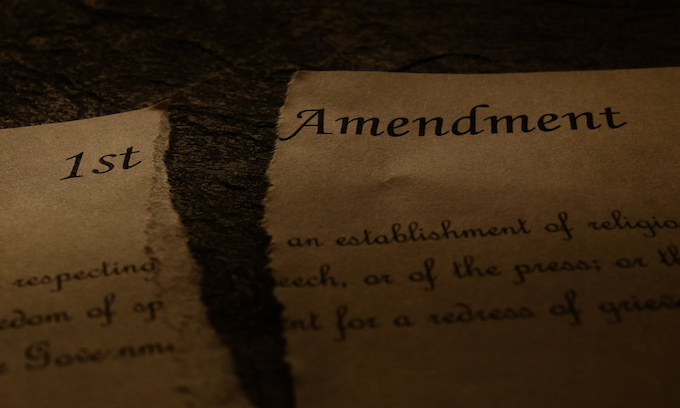
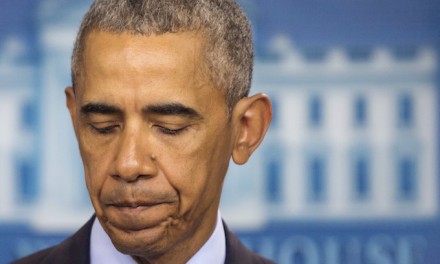
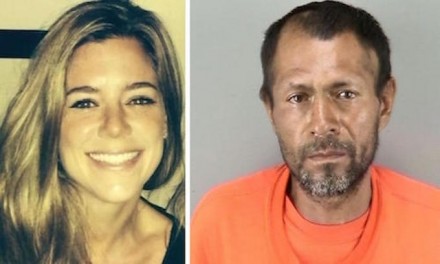








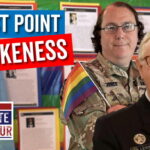
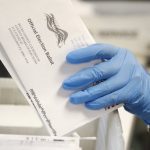



“or whether the government can compel them to say things that they don’t believe or silence them from saying things that they do believe.”
The high court’s ruling that favored Phillips was famously one-sided, 7-2, but it never settled the issue if Phillips can be forced (by the government) to design a product for an event that he views as sinful in God’s eyes.
The main purpose of the Bill of Rights is to guarantee the individual rights of citizens under the U.S. Constitution. Proponents felt that these rights should be explicitly stated in writing so that the federal government could not arbitrarily abridge them.
but this Democrat Party ignore the parts of U.S. Constitution that doesn’t support their intensions and agendas and gets away with their unlawful actions.
The left, CARES NOT what the laws say, or the constitution. THEY JUST care about their feelings and their agenda.
the Firs Amendment in all its facets is there to protect the minority from the tyrany of the majority while by the same token protecting the majority from the more dangerous tyrany of special interests. The Constitution has several concrete ‘Thou shalt nots’ in it, yet some who take advantage of those provisions to state their positions are adament that others should be prohibited from stating their’s. In this case religion has no place being out in the public yet groups like the Amish and Menonites have no problem because they are in a community but other people of faith are out in the world and for some reason expected to put their beliefs aside. The question: throwing out the erronious notion of separation of church and state as commonly held, can the court rule that religious beliefs, though personsal, can be subject to secular practices relegating the practice of such to churches etc., ar that strongly held beliefs are a legitimate frame of reference for many people. The Court is saddled with the task of defining the relationship between government and religion!